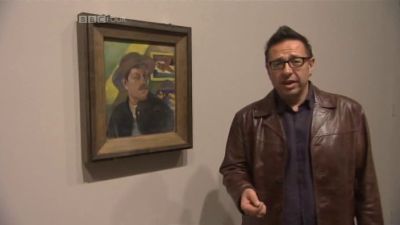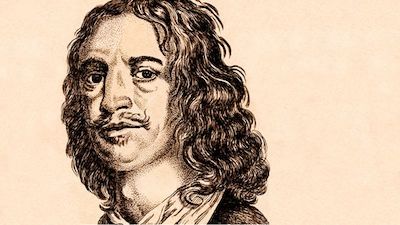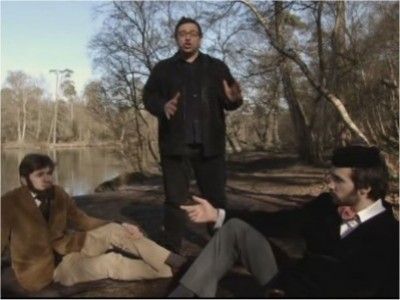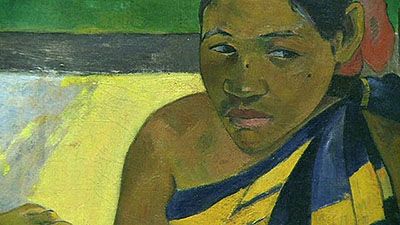The BEST episodes written by Waldemar Januszczak
#1 - Mary Magdalene: Art's Scarlet Woman
BBC Documentaries - Season 2017 - Episode 81
Waldemar Januszczak explores the impact of Mary Magdalene's myth on art and artists. All saints in art are inventions, but no saint in art has been invented quite as furiously as Mary Magdalene. For a thousand years, artists have been throwing themselves at the task of describing her and telling her story, from Caravaggio to Cezanne, Rubens to Rembrandt, Titian to van Gogh. Her identity has evolved from being the close follower of Jesus who was the first witness to his resurrection, to one of a prostitute and sinner who escaped from persecution in the Holy Land by fleeing across the Mediterranean to wind up living in a cave as a hermit in the south of France, enjoying ecstatic experiences with Christ.

#2 - Gauguin: The Full Story
BBC Documentaries - Season 2005 - Episode 3
One hundred years ago, on the Island of Hiva Oa in the Marquesas, a syphilitic and alcoholic Frenchman called Paul Gauguin died of a heart attack. At that point nobody realised the incredible impact Gauguin's work was to have on modern art. Art critic and broadcaster, Waldemar Januszczak has written and directed this examination of a man who was not only a great painter but sculptor, wood carver, musician, print maker, journalist and ceramicist. As well as telling the remarkable story of Gauguin's life, Januszczak also celebrates Gauguin's achievements and examines the various accusations of sexual misconduct, familial neglect and racism that are frequently made against him.

#3 - The Lost Genius of British Art: William Dobson
BBC Documentaries - Season 2011 - Episode 168
Has one of Britain's greatest artists been unfairly forgotten? Waldemar Januszczak thinks so. In this documentary, Januszczak argues that the little known 17th-century portrait painter William Dobson was the first English painter of genius. Dobson's life and times are embedded in one of the most turbulent and significant epochs of British history - the English Civil War. As official court painter to Charles I, the tragic British king later beheaded by parliament, Dobson had a ringside seat to an period of intense drama and conflict. Based in Oxford, where the court was transferred after parliament took control of London, Dobson produced an astonishing number of high quality portraits of royalist supporters, heroes and cavaliers which Januszczak believes are the first true examples of British art. As he puts it in the film: 'Dobson's face should be on our banknotes. His name should be on all our lips.' The film investigates the few known facts about William Dobson and seeks out the personal stories he left behind as it follows him through his tragically short career. When he died in 1646 - penniless, unemployed and a drunk - Dobson was just 36. Among the Dobson fans interviewed in the film is Earl Spencer, brother of Princess Diana, who agrees wholeheartedly that William Dobson was the first great British painter.

#4 - Manet: the Man Who Invented Modern Art
BBC Documentaries - Season 2009 - Episode 130
Manet is one of the main candidates for the title of the most important artist there has been. As the reluctant father of Impressionism, and the painter of Dejeuner sur l'herbe, he can probably be accused of inventing modern art. Using the life of Manet as his narrative arch, Waldemar Januszczak tells the story of a complex and difficult man who started a revolution that continues to rumble on today

#5 - Gauguin - The Full Story
BBC Documentaries - Season 2010 - Episode 226
In 1903, on the island of Hiva Oa in the Marquesas, a syphilitic and alcoholic Frenchman called Paul Gauguin died of a heart attack. At that point nobody realised the incredible impact Gauguin's work was to have on modern art. Art critic and broadcaster Waldemar Januszczak wrote and directed this examination of a man who was not only a great painter but sculptor, wood carver, musician, print maker, journalist and ceramicist. As well as telling the remarkable story of Gauguin's life, Januszczak also celebrates Gauguin's achievements and examines the various accusations of sexual misconduct, familial neglect and racism that are frequently made against him. The film contains many of Gauguin's masterpieces and includes paintings put on show at the Hermitage in St Petersburg which haven't been seen in public since their disappearance during World War II.
#6 - Toulouse Lautrec: The Full Story (1)
Channel 4 (UK) Documentaries - Season 2006 - Episode 6
Sometimes comic, often tragic, this is a tale of aristocracy, obsession, alcoholic and sexual excess. Yet during the course of his turbulent life, Lautrec succeeded in producing a huge body of work that was truly revolutionary in tone and impact, shattering the distinction between high and low art. He transformed the darkest depths of the human condition into artistic gold. Waldemar argues that the story of Lautrec is also the story of the birth of celebrity and mass media. Yet a century after his death, the artist has received none of the usual acclaim in line with his achievements. Toulouse Lautrec's crime was that he remained the consummate outsider - an outsider to his family when he was alive; to critics when he died; and by art historians ever since. All are guilty of taking him less seriously than he deserved. Waldemar tells Toulouse Lautrec's story in all its fascinating detail, celebrating the vibrant life and career of one of the world's most misunderstood geniuses.